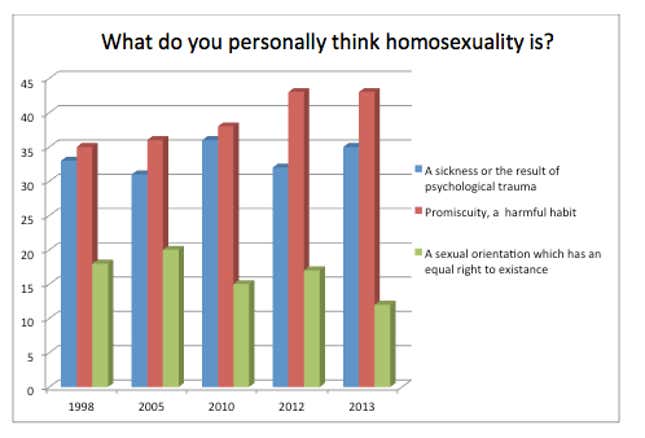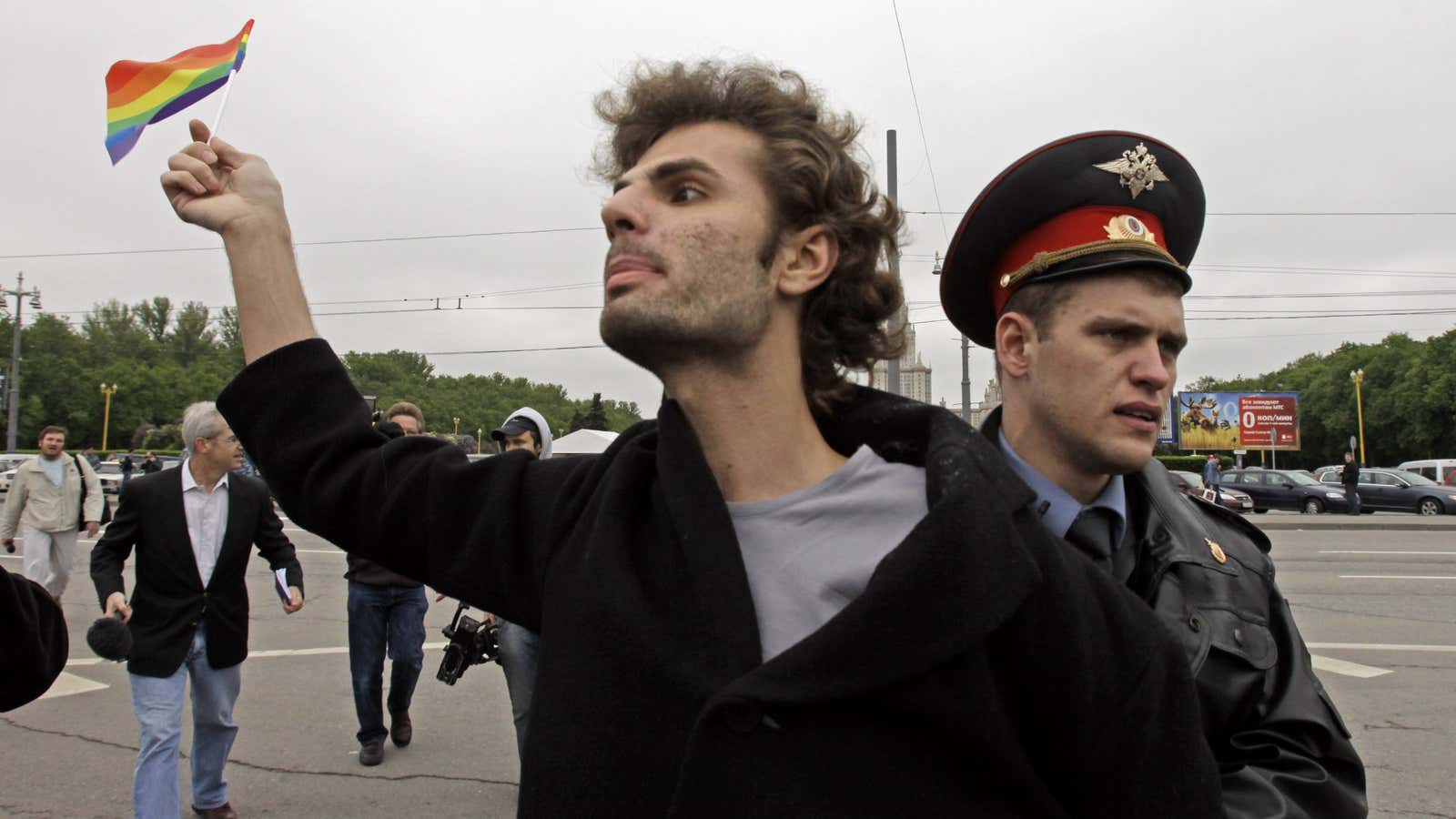There’s some truth to the notion that ever since Vladmir Putin decided to return to the presidency, the Kremlin is not quite as adept at manipulating and controlling public opinion. A quick glance at Putin’s poll numbers demonstrates that while his ratings have been broadly stable for the past year and a half, the vozhd, leader, really isn’t as popular as he was back during the height of the oil boom. Sixty-four percent approval isn’t awful, but it’s nowhere near the stratospheric heights he once enjoyed. And the decision to sack cabinet member Vladislav Surkov—who was famous for his arcane political maneuverings, his black PR, his caution, and his distaste for bloodshed or repression—really does suggest a political leadership that is increasingly confortable with bashing heads and that is less and less concerned with poll-driven triangulation.
However, I don’t think it’s true that Putin and his coterie of advisers have suddenly transformed into political versions of the Keystone cops. The Kremlin, confronted with an educated upper class that increasingly views the authorities with contempt, has consciously made a decision to appeal to the poorer, more conservative, and more traditionally-minded parts of society, and it has actually pursued this strategy with a fair degree of cunning and intelligence.
The ban on “homosexual propaganda,” which was passed unanimously by the State Duma, the lower house of the federal assembly, and sounds cartoonishly primitive and retrograde to Western ears, is unfortuantely an example that someone in the Kremlin still has astute political instincts. Because if you were looking for one contentious issue that would thoroughly isolate the liberal-minded opposition from the great mass of Russian society, you would be hard pressed to find an issue better suited than homosexuality.
Despite communism’s (false) proclamations that it was ushering in a new era of sexual freedom and gender equality, Russia has always been conservative in regards to sexuality and extremely unfriendly towards gay people. Homosexual relations were criminalized throughout virtually the entire Soviet period, and were decriminalized only as recently as 1993.
Precisely why Russian society is so persistently and poorly disposed towards gay people is a topic that is beyond the range of this article, but suffice it to say that the Russian public has extremely negative attitudes towards homosexuality and that these attitues have, if anything, become marginally less tolerant over time. The Levada Center, Russia’s most respected independent polling agency, has data on Russians’ opinions of homoseuality going back to 1998. While Russian society has become increasingly wealthy and has, in some ways, become much more open (large majorities of Russians support free and fair elections and are increasingly troubled by official corruption and malfeasance), these changes haven’t been reflected in attitudes towards sexual minorities.

When Russians were asked, “do you think the government should suppress any public manifestations or defenses of homosexuality?” 73% percent of respondents agreed, while only 14% voiced any opposition. Russians are clearly troubled by any public displays of homosexuality, and the law passed by the Duma was deliberately crafted to cater to this fear.
The Kremlin could easily overplay its hand if it tries to start ferreting out gay people who were living their lives in private; while not a majority, a very large number of Russians think that gay people should enjoy the same civil rights and should largely be left alone. But in focusing on “homosexual propaganda” and on potential “indoctrination” of children, the Kremlin has adeptly chosen an issue where Russian society overwhelmingly expresses an illiberal opinion. The opposition is in the truly unenviable position of either supporting a popular law that it knows to be wrong, or of selling out its convictions in the name of convenience.
It should go without saying that the fact that the Kremlin is catering to the polls doesn’t justify its behavior, and I personally regard the law as a travesty. But when trying to understand where Russia is and where it’s headed, we’d be well advised to remember that the Kremlin isn’t populated by fools. While Putin and his advisers have made their share of missteps over the past few years, they aren’t the bumbling incompetents they are so often caricatured to be.
